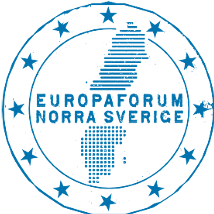Northern Sweden’s sparsely populated regions play an important role in the EU’s green transition, digitalisation and quest for strategic independence. Now that the EU is to develop a new research programme, it should be designed so that we do not risk being left behind, says the political network Europaforum Norra Sverige.
Funds from the EU’s research programme have contributed greatly to northern Sweden being an innovative part of Europe. Hundreds of millions of Swedish kronor have been allocated to hundreds of research actors, and have been of great benefit to the EU as a whole. But the next research programme – the tenth in the series, known as FP10 – is an opportunity to create greater societal benefit by broadening participation.
Northern Sweden has many small actors in research and innovation. There are micro–enterprises and small and medium–sized enterprises in sparsely populated areas. These actors possess valuable expertise that can contribute significantly to research projects and increased competitiveness. However, they risk being excluded because of the heavy administrative burden that currently accompanies projects in the research programme. FP10 should therefore simplify the administration to make participation more accessible, says Europaforum Norra Sverige.
– It is important for northern Sweden that we continue the innovative development that is now taking place and that small businesses can also participate. This requires both efficiency and simplification. It is important for the EU’s competitiveness that we continue to work with research and innovation and get more resources, says Anders Öberg, Chair of the Regional Board of Region Norrbotten. He is a rapporteur in the area of Research, Innovation and Business in Europaforum Northern Sweden.
Europaforum Norra Sverige (EFNS) is a network whose purpose is to promote the interests of northern Sweden in the EU arena and in EU issues at the national level. In the network’s position on the upcoming research programme, a concern is raised that there will in fact be a sharp reduction in funding.
This is because there is a concern that the funds previously allocated to collaborative projects on global challenges and industrial competitiveness will be taken out of FP10 and into a newly created competitiveness fund. It is from this pot that most of the research in northern Sweden is funded.
– If this pot disappears, there is a risk that hundreds of millions of SEK in funding will be lost, for hundreds of research actors in Northern Sweden. EFNS believes that this research is too important for Europe’s competitiveness to be removed from the research programme, says Anders Öberg.
EFNS sees a need for a number of priorities in the upcoming FP10, which concern the conditions in regions like Northern Sweden. This includes the need for Arctic research that is not just about climate, polar regions or oceans, but about the needs of people here.
– We need research on food self–sufficiency, resilient forestry, energy transition, digital health and welfare services, labour mobility, land use conflict resolution and border security – to name a few important areas, says Anders Öberg.
But if such research is to provide real societal benefits, local and regional actors, who know best the needs and conditions here, need to play a greater role. Society will get the best effect from investments if there is good coordination between funding from the research programme and from cohesion policy funds. For example, a research project can be developed into a product or service with the help of funding from the European Regional Development Fund. But this requires good dialogue, simpler rules and broader participation, says Europaforum Northern Sweden.
Find the position paper here: Europaforum Northern Sweden’s views on the EU’s TenthFramework Programme for Research and Innovation

